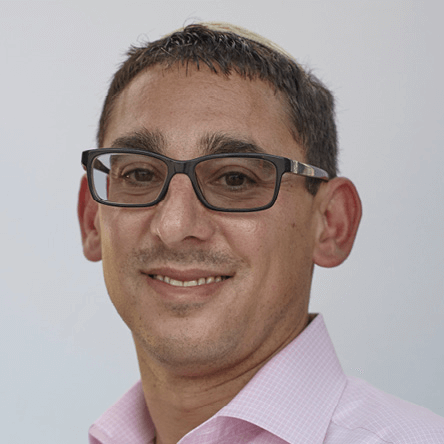Journal
Credits
View or Print Full
Journal in PDF
An Ancient Solution to a Pressing Problem: Sabbatical Years for JDS Heads of School
I distinctly remember the first day of school in August 2014. After having been the head of two Jewish day schools over the prior nine years, I was beginning my tenure as the Executive Director of the Schechter Network. I was still deeply engaged in the field. I was still working long hours. But I was not a head of school. As I drove my girls to school for the first time as a parent (only), wearing shorts and flip-flops, I remember feeling something I had not felt in almost a decade during that time of the year…calm. I wound my way through the carpool lane, dropped my girls off, waved to the new head of school (ironically a colleague who was returning to the headship) and as I headed home to begin my workday, I could swear I saw a tear lazily dripping down his cheek. I took a deep breath, smiled a wide smile, turned up the radio, and drove off.
I was no longer a head of school.
My time out of the headship provided me with opportunities to learn, to research, to reengage with the field from a different perspective, to travel to new schools and meet new educators, and to live a more conventional schedule (I did have a heavy travel schedule, but it was balanced with work-from-home flexibility and no evening meetings). I got to be a parent. I got to be a congregant. I got to go to the supermarket. I could do all of those things without having to wear or worry about my professional hat.
I was no longer a head of school.
Fast forward three years and I found myself beginning my third headship at a new school with new challenges, new pressures, new people, and new opportunities. The story of being a head of school had not changed all that much during my three years out. The job was as significant, consuming, meaningful, exciting, and daunting as ever. But I was different. I was calm. I was looking forward to putting into practice all the new things I had discovered during my time out.
For example, my visits to over 50 schools gave me 50 different ways to construct a leadership team and 50 different ways to build a schedule. My ability to mix and match best practices had been amplified exponentially. My opportunity to read and communicate with innovation leaders like the American School of Bombay with their unique “R & D” model for schools, equipped me with powerful new ideas to lead my new school forward.
I was ready.
None of this happened by strategy. I never thought I would leave the headship and then when I left, I never thought I would return. There is nothing unique about my career path. Man plans; God laughs; Jewish educators move. When I wrote (The Musical Chairs of Greener Grass: The JDS HOS Search Process) a few years ago in response to the crisis in the headship, where the average tenure of a JDS head of school (2.7 years) is less than the average length of successful change management (3-5 years), I named a variety of factors, including burnout. What I didn’t know until my return to the headship, is how much more prepared I was going to be for the rigor and the challenge of being a full-time Jewish educator, where the pressure to be “on” is 24/7/365, from having taken time out. If we are serious about the wellness of Jewish educators and, thus, the wellness of Jewish schools, it is time to revisit an idea that is Biblical in origin, but more relevant than ever.
I believe we can strengthen the field and invest in the success of its leaders by providing Jewish educators with a sabbatical.
Timing is everything and not all situations and leaders will lend themselves equally to building a successful sabbatical experience. But I do believe that with planning and a field-wide commitment, we could create a system that would benefit the individual educators, the schools they serve, and the wider field.
Let’s address the big questions a sabbatical year for heads of school naturally raises:
How should educators spend their sabbaticals in ways that would mutually benefit themselves and their schools?
How could schools strategically navigate the year without their leader?
How should the larger field support and/or fund this work in ways that could add and share new research and ideas?
The first question seems the easiest to address, so let’s begin there. My years out of the field were not sabbatical years, but the experiences I was able to have by virtue of working first for the Schechter Network and then for Prizmah after the merger, give me some perspective for the kinds of experiences that may benefit heads and their schools. For example, the opportunity to embed myself (however briefly) in different school and work cultures gave me a lens no article, blog, tweet, or Skype call ever could. A “sabbatical year” in this context is not designed to be a “year off.” Instead, we are looking for a year of meaningful and enriching professional growth outside the pressure cooker of the headship. There are some big-ticket items a head of school could attempt to tackle (or at least take a meaningful bite out of) during a sabbatical year including Executive Ed.D. or Ph.D. degrees, pursuing other graduate programs of study, or securing professional certifications. There are wonderful programs that presently focus their energy on sitting heads – such as the Day School Leadership Training Institute (DSLTI) – whose time commitments may limit participation. Having cohorts of active heads in sabbatical could create new tracks for existing programs or be the impetus for new programs to strengthen heads of school.
I could imagine a world where foundations and umbrella organizations provide (and/or fund) yearlong opportunities to think-tank major issues, work collaboratively on field-wide projects, or simply provide heads on sabbatical with a structure to visit other schools (both inside and outside the Jewish field) with deliverables on relevant findings.
In each case, the critical deliverable would be something tangible – a white paper, a thesis, a dissertation, a new curriculum, a grant application, a new social network, etc. – that benefits the individual head, their school, and the field.
When it comes to the schools, timing is obviously critical and without a measure of stability and a lot of strategic planning, it could seem out of reach for all but the largest and most stable schools. And that would be a shame because we are already a field polarized between the “haves” and the “have-nots” in terms of resources, and the heads of the smaller schools would benefit as much the heads of the larger schools, albeit in different ways. So instead of thinking of all the reasons why schools couldn’t provide their heads with a sabbatical, let’s try to answer the question, “What would need to be true for a school to provide their head with a sabbatical?”
The first and most important answer to that question is a capable and prepared “Acting Head of School.” Even with the head on sabbatical potentially available to participate in certain pre-determined activities during the year, someone has to be the acting head. From an accountability standpoint, students, teachers, parents, board members, etc., need to know who is ultimately in charge during the year of sabbatical. An “acting head” should be named and in some circumstances the position could even be shared across a number of people. With more and more emphasis being placed on transition planning, it could be a wonderful opportunity to provide a current school leader with the skills and hands-on training necessary to help him or her take the next step when appropriate. Schools as learning organizations should be invested in the career paths of their employees. In smaller schools, it is almost inevitable that those career paths will take some talented and ambitious teachers and administrators out of the school because there are only so many leadership positions. I think that in exchange for the skill-building and resume-building that serving as an “acting head” brings, it is reasonable to expect acting heads to slide back into their prior roles while either waiting for a planned opportunity to move up or out depending on circumstance. Of course, much depends on the relationship between the head and the acting head.
In any scenario, the school and the head would have to do significant planning in the years heading into sabbatical. In addition to the yearly work of setting up the next year – hiring, schedules, curriculum, etc. – a school would also have to look at a longer strategic arc that includes macro-fundraising, innovative projects, and multiyear initiatives in order to feel adequately prepared. I don’t pretend that this is easily achieved, but I do believe if the outcome results in a renewed head of school returning with new ideas and an expanded mindset, that the long-term benefits outweigh the short-term challenges. In the best-case scenario, a school keeps its current head in place longer and prepares its next one for future success.
The opportunity to provide a sabbatical year would serve as a huge incentive for schools and heads to accept longer, more stable contracts. Whether those are seven-year contracts with a sabbatical or whether it comes as part of a first, second, or third contract, etc., the idea that a long-term commitment between head and school can be both incentivized and guaranteed by the promise of sabbatical would have impact. I know that I would be much more inclined to push through challenging times and normal burnout with my school making an investment in me.
As for the field itself, it would be wonderful if some of the same cohort experiences currently subsidized by donors and foundations could be expanded to a cohort of heads on sabbatical. Ideally, everyone – the head, the school, and the field – would have some skin in the game. The school would be looking to ensure the head’s salary (or much of it). The head may have fees or travel costs. The “field,” by which I include umbrella organizations like Prizmah and Torah Umesorah, foundations, local agencies for Jewish education, universities, etc., may be able to either provide subsidized rates and/or direct subsidization for the experiences. Most importantly, we would be looking to amplify the learning and the collaboration between heads on sabbatical through networking and network weaving. The best way to ensure that not only the head and his or her school benefits, but that the entire field benefits, is to leverage the existing networks and share the deliverables across the field.
With what we know to be true about the state of the headship in Jewish day schools, we need to be thinking about ways to make our heads of school stronger and the head of school position more sustainable. Sabbaticals are not going to be appropriate for all heads, schools and situations, but under the right conditions, I do believe they can serve as a powerful corrective to our current lack of longevity. Sometimes what is old becomes new again. Let’s have the conversation.

by Jon Mitzmacher
Head of the Ottawa Jewish Community School
Dr. Jon Mitzmacher is the Head of the Ottawa Jewish Community School. He was most recently the VP of Innovation for Prizmah: Center for Jewish Day Schools. Previously he is the former Executive Director of the Schechter Day School Network and former head of the Martin J. Gottlieb Day School. Jon has worked in all aspects of Jewish Education from camping to congregations and everything in between. You can follow him @Jon_Mitzmacher or at
www.jonmitzmacher.com.



